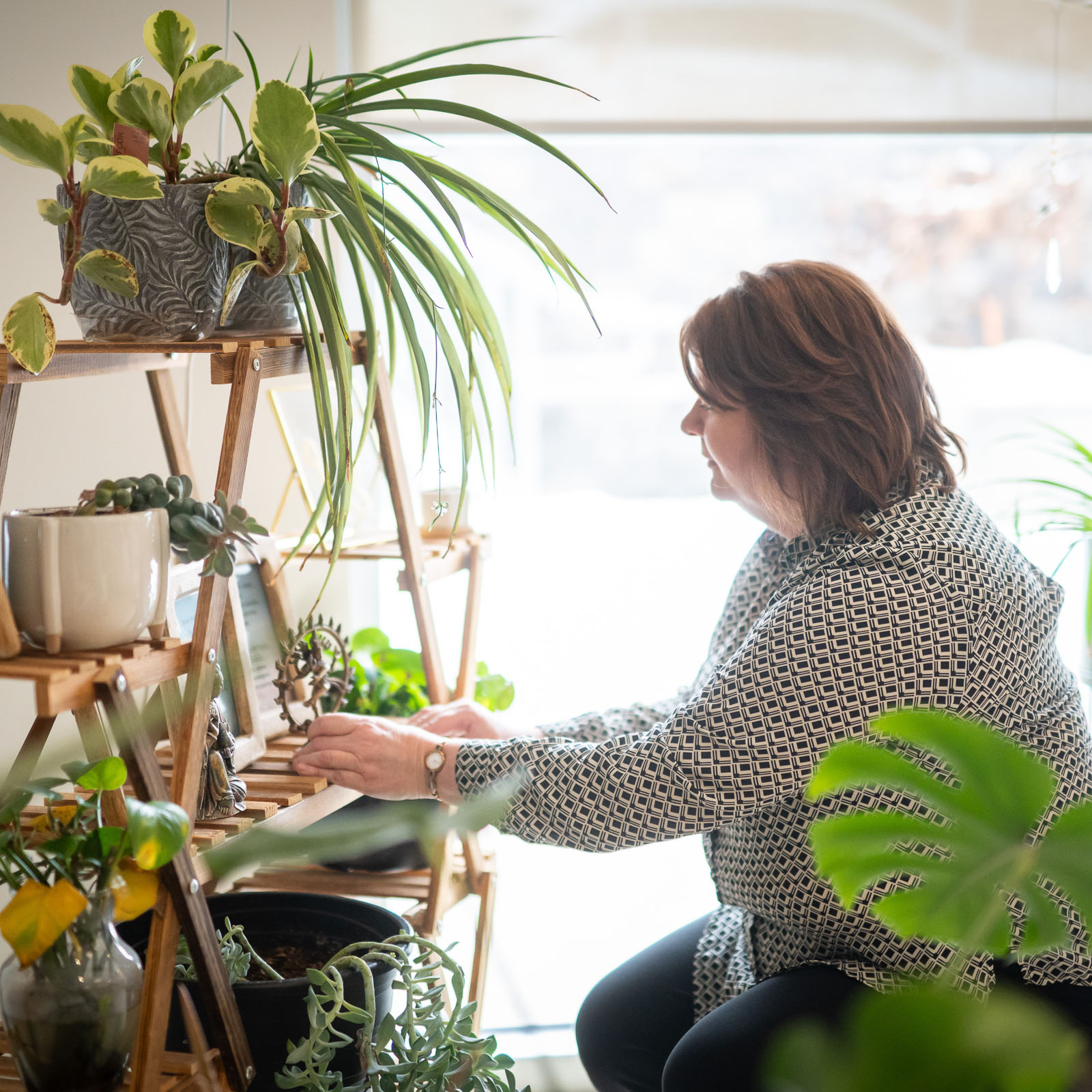Story Posted: 2025-07-29
Spiritual Care at the Hospice at Glengarda: Support for Everyone
From the St. Paul’s Hospital and Foundation 2024-2025 Annual Review

At the Hospice at Glengarda, Spiritual Care is integral to providing holistic, compassionate care to patients and their families. Rooted in the belief that end-of-life care should address not only physical needs but also cognitive, emotional and spiritual needs, the Hospice’s Spiritual Care programming focuses on building relationships and helping individuals find peace and meaning in their final days.
Spiritual care at the Hospice is deeply personalized to each individual and their family. As Madeline Oliver, the Hospice’s Spiritual Care Provider, explains, “When someone comes to the Hospice, no matter their faith tradition or background, we will meet their needs in whatever way is meaningful and comfortable to them.”
Spiritual Care Providers, including Madeline, receive training through a program called CPE (Clinical Psychospiritual Education) that has been offered at St. Paul’s for more than 30 years, and is supported by SPH Foundation’s Grey Nuns Legacy Fund. Through this program, students learn about active listening, psychology foundations and diverse religious traditions. This helps them respond to the unique spiritual needs of patients, regardless of their background or belief system. Within Saskatchewan, St. Paul’s is one of only two training sites, with a second program located at Santa Maria Senior Citizens Home (a fellow Emmanuel Health Facility) in Regina.
Spiritual Care at the Hospice, funded through St. Paul’s Hospital Foundation’s Holistic Care Endowment, creates opportunities for patients, loved ones and staff to find meaning, comfort and spiritual connection in the manner most valuable to them. Madeline works alongside other members of the Holistic Care team, collaborating with music therapy, palliative arts, life enhancement and volunteer services to create space for patients to connect with what brings them peace — whether through art, music, connecting with family, reaching out to clergy, communion, smudging, prayer or other cultural traditions.
“My job is to serve patients’ and families’ spirits,” Madeline explains. “It could be music, it could be art, it could be faith, it could be gardening; what brings you joy, and brings you meaning and purpose in your life?” At the Hospice at Glengarda, Spiritual Care is about being present for patients and their families, offering comfort, and helping them find meaning during life’s final journey.
